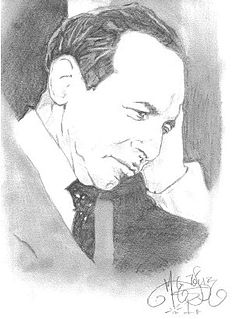A Quote by Immanuel Wallerstein
To be sure, the use of force by one party in a market transaction in order to improve his price was no invention of capitalism. Unequal exchange is an ancient practice. What was remarkable about capitalism as a historical system was the way in which this unequal exchange could be hidden; indeed, hidden so well that it is only after five hundred years of the operation of this mechanism that even the avowed opponents of the system have begun to unveil it systematically.
Quote Topics
About
After
Ancient
Begun
Capitalism
Could
Even
Exchange
Five
Force
Hidden
His
Historical
Hundred
Hundred Years
Improve
Indeed
Invention
Market
Mechanism
One Party
Only
Operation
Opponents
Order
Party
Practice
Price
Remarkable
Sure
System
Transaction
Unequal
Unveil
Use
Use Of Force
Way
Well
Which
Years
Related Quotes
Capitalism is the only system that can make freedom, individuality, and the pursuit of values possible in practice. When I say 'capitalism,' I mean a pure, uncontrolled, unregulated laissez-faire capitalism - with a separation of economics, in the same way and for the same reasons as a separation of state and church.
What distinguishes the historical social system we are calling historical capitalism is that in this historical system capital came to be used (invested) in a very special way. It came to be used with the primary objective or intent of self-expansion. In this system, past accumulations were 'capital' only to the extend they were used to accumulate more of the same.
The truth is that capitalism has not only multiplied population figures, but at the same time, improved the people's standard of living in an unprecedented way. Neither economic thinking nor historical experience suggests that any other social system could be as beneficial to the masses as capitalism. The results speak for themselves. The market economy needs no apologists and propagandists. It can apply to itself the words of Sir Christopher Wren's epitaph in St. Paul's: Si monumentum requires, circumspice.
Laissez-faire capitalism, or anarchocapitalism, is simply the economic form of the libertarian ethic. Laissez-faire capitalism encompasses the notion that men should exchange goods and services, without regulation, solely on the basis of value for value. It recognizes charity and communal enterprises as voluntary versions of this same ethic. Such a system would be straight barter, except for the widely felt need for a division of labor in which men, voluntarily, accept value tokens such as cash and credit. Economically, this system is anarchy, and proudly so.
Despite the miracles of capitalism, it doesn't do well in popularity polls. One of the reasons is that capitalism is always evaluated against the non-existent, non-realizable utopias of socialism or communism. Any earthly system, when compared to a Utopia, will pale in comparison. But for the ordinary person, capitalism, with all of its warts, is superior to any system yet devised to deal with our everyday needs and desires.
The problem is that, in a world of floating exchange rates, as Italy was before the euro, if one country is subjected to a shock which requires it to cut wages, it cannot do so with a modern kind of control and regulation system. It is much easier to do it by letting the exchange rate change. Only one price has to change, instead of many.
I see myself, in terms of the question of capitalism, as I would support democratic socialism over a capitalist system, because any approach... or participatory economics, which is another great model that people like Michael Albert are putting out there... any system that encourages us to think about interdependency, and to be able to use the world's resources in a wiser way, for the good of the whole, would be better for the world than capitalism.
Ignorance, as well as disapproval for the natural restraints placed on market excesses that capitalism and sound markets impose, cause our present leaders to reject capitalism and blame it for all the problems we face. If this fallacy is not corrected and capitalism is even further undermined, the prosperity that the free market generates will be destroyed.


































